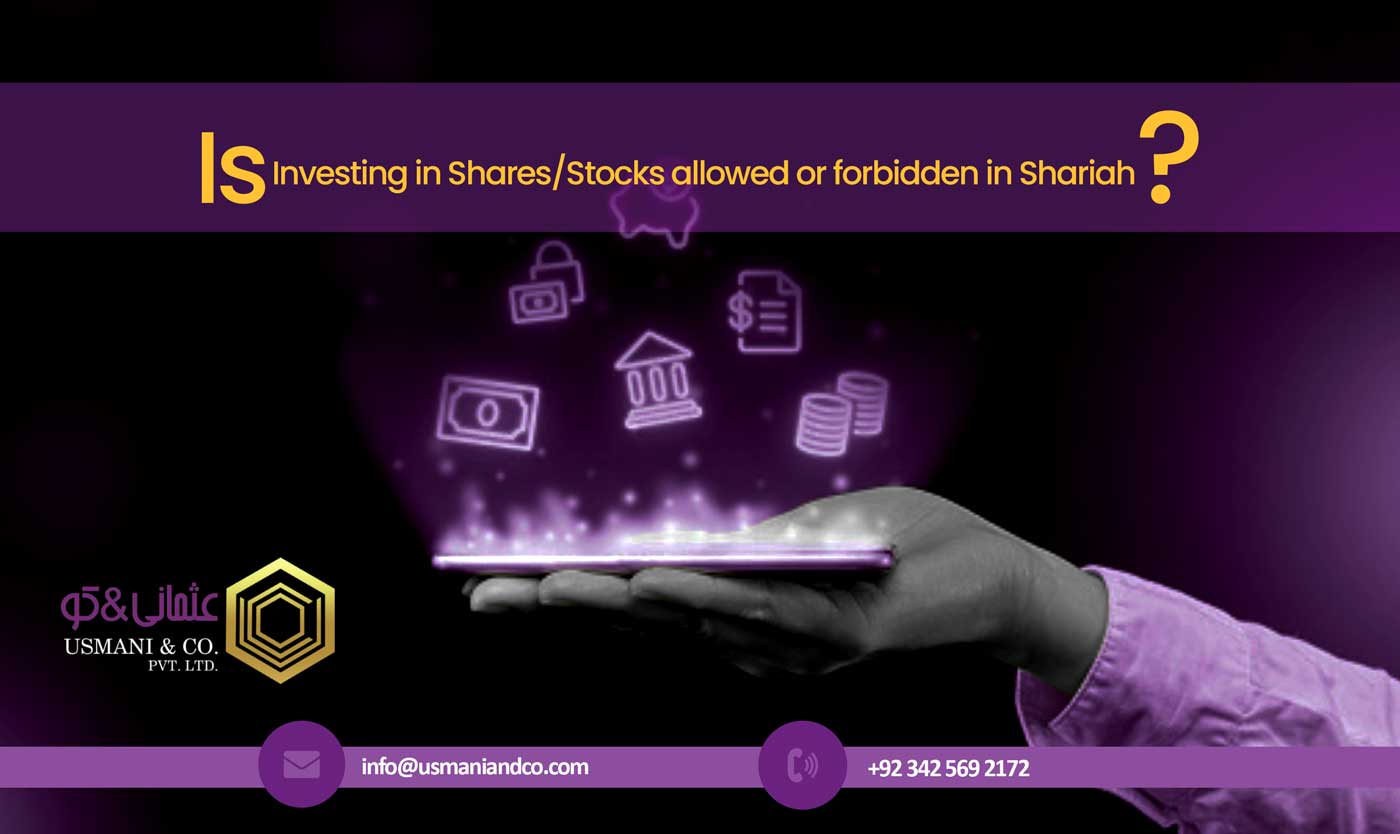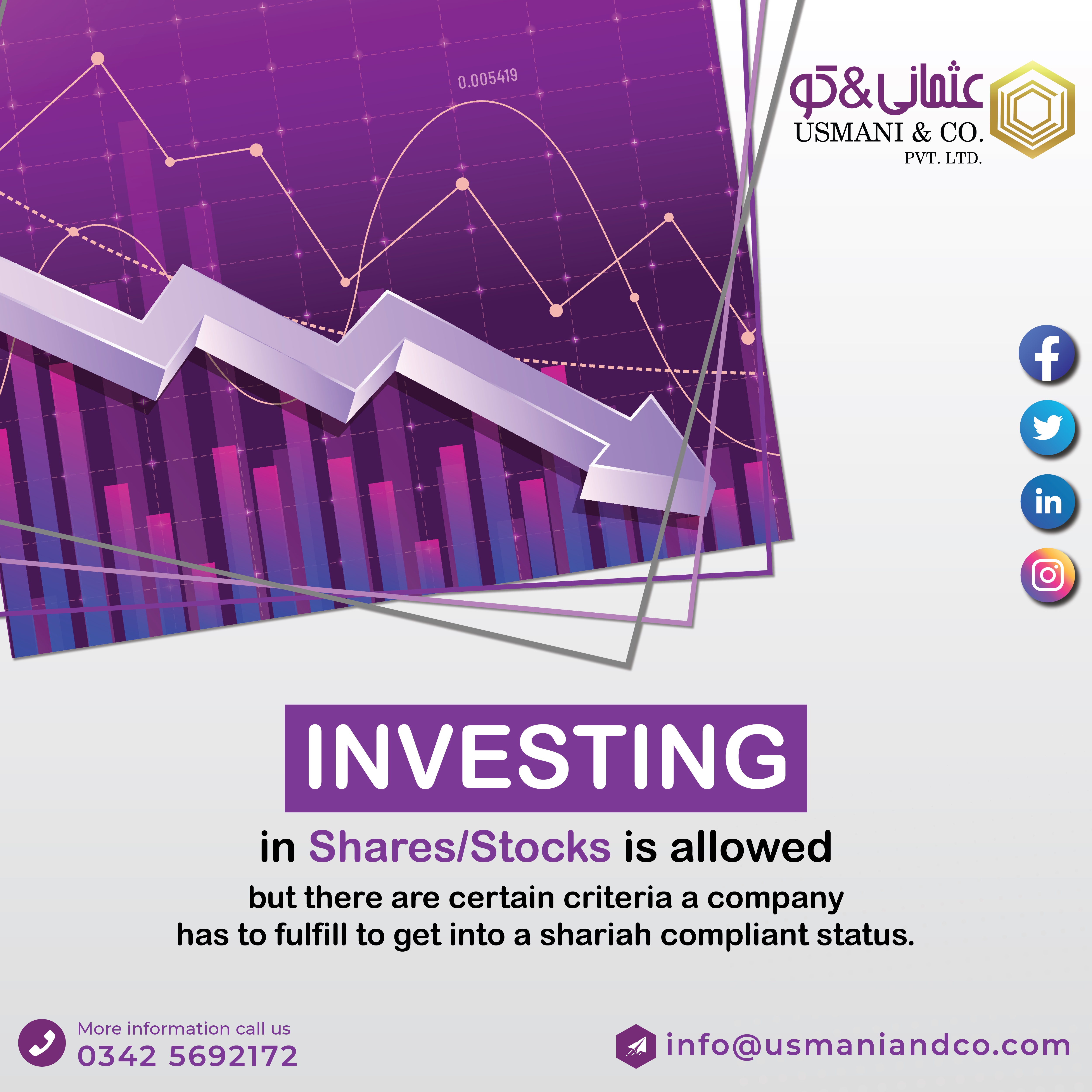A common question that, many of us ask is whether it is allowed to invest in stocks or /shares. As we go deeper into that thought other questions also come up such as, What makes a stock halal? Which stocks are particularly Halal and whether we should invest in those? What does stock screening mean? What is the screening criteria? Do I need to screen every stock before investing? Is it safe to invest in shariah compliant stocks?
Speculation and gambling, excessive leverage, credit crunches, and sophisticated financial products are the main causes of financial crises. The majority of these are aspects that are permissible in a conventional financial system but are forbidden by Shariah (Islamic law) principles. Conventional equity markets, which are essentially profit-driven, sometimes overlook the moral perspective, allowing for exploitation and corruption.
In truth, vast majority of corporations listed on stock exchanges are engaging in unlawful activity in some form or another. It is quite difficult to locate a publicly listed corporation that is totally shariah compliant. To put it another way, while it is possible to locate firms on the stock exchanges whose primary commercial activity are shariah compliant, they are, however, almost always involved in certain non- shariah compliant activities as well.
Many Shariah scholars realised the difficulty of the situation and attempted to offer practical remedies. They did not outright reject mixed-activity corporations; instead, they proposed criteria for determining whether a company or stock is Shariah-compliant. As a result, the attention was shifted to businesses that engaged in both legal and illegal activity. The major goal of the proposed criteria was to include a company in the list of shariah compliant companies that had a lawful core business activity and a low degree of prohibited features that can be screened through different financial ratios. Companies and investors needed maximal flexibility and concessions within the criteria, so they could take advantage of funding and investment opportunities in approved businesses. Unlawful core business activities include: Alcohol , Music, Pork, Hotels, Cinema, Weapons, tobacco and Cannabis, Adult Entertainment, Gambling/Casinos and Conventional Financials.
Activities like as “Gharar,” which means uncertainty or deception, speculating, or gambling, are ethically and religiously prohibited. Stocks are screened on the basis of world’s most acceptable methodologies of shariah compliant screening standards.Otherwise, investors would not have been able to find a market that met their demands while adhering to their religious beliefs of avoiding uncertain activities. Shariah-compliant companies thus have the potential to attract not only Muslim investors, but also a substantial number of ethically conscious investors who seek to avoid harmful industries.
The Zeal Corporation is one such platform that provides world class shariah compliant screening based on 12 most commonly used standards across the globe. The Zeal’s stock screening process is validated and accredited by Usmani & Co. ( globally well reputed Shariah advisory firm). We, at Usmani & Co. screen each stock by the world’s most acceptable methodologies of shariah compliant screening standards for The Zeal.
The Zeal also provides the data analytics of different investment asset classes across globe along with trading platform. Currently, this trading platform is live in USA.
In recent years, the Islamic stock market has expanded outside Muslim-majority nations like as Malaysia, Indonesia, Iran, Saudi Arabia, and the United Arab Emirates. There has been a notable development in Islamic equities markets in developed nations where Muslims are in the minority, such as Europe, the United Kingdom, the United States, Japan, and Canada. For a time, the Shariah prohibited Muslim investors from participating in these stock markets. It was only when the International Islamic Fiqh Academy of the Organization of Islamic Cooperation (IIFA-OIC) issued a resolution in 1992 that it was deemed legal. The IIFA-OIC permitted investment in joint stock enterprises whose commercial activities are fully Shariah compliant. As a result, participation in businesses whose business activities are either impermissible or contain a mix of authorised and unlawful aspects is not permitted.



